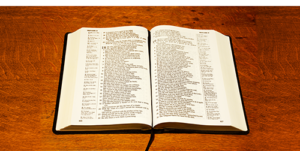Dr. McKellar’s Lesson for March 13, 2016
“Supernatural Churchbirth” Acts 2:1-15 Bible Study 03/13/16
This morning’s text focuses on the pouring out of the Holy Spirit upon the early church. This event stands as a powerful fulfillment of that “promise of the Father” for which the apostles were to wait in Jerusalem (Acts 1:4-5). The outpouring of the Holy Spirit at Pentecost is a unique historical event which marks the supernatural birth and empowerment of the church.
I. Look at the location (1)
-context: promise/ascension/selection of Matthias
-Jerusalem: according to the promise
-in one place: about 120 (Acts 1:15)
II. Observe the manifestation (2-3)
-sound…wind…filled (hearing)
-sight…tongues of fire…distributed (seeing)
-supernatural indicators
III. Recognize the verification (4-12)
-filled with the Holy Spirit
-tongues-“glossa”-languages in this context
-empowered by the Holy Spirit-supernatural enablement
-response of bewilderment and amazement
-roll-call with an “all the known world” emphasis
-Language/Babel connection and significance (Genesis 11)
IV. Consider the explanation (13-15)
-accusation of drunkenness
-Peter’s 9:00 a.m. response
-Joel 2:28-32 fulfillment (Acts 2: 16-21)
V. So what?
– Because of the fulfilled promise of the Holy Spirit, the church is equipped supernaturally for the task of transmitting gospel truth.
– Remember, we go forward with the Lord’s power and presence.
– Magnify the supernatural nature of the gospel.
– Invest in Kingdom expansion!
– “When anemic sermons are red again with the crimson blood of Jesus…showers of revival fire and blessing will again fall in America.” (Bill Piper)
– “Joy of the desolate, light of the straying, hope of the penitent, fadeless and pure! Here speaks the Comforter, tenderly saying, ‘Earth has no sorrow that heaven cannot cure.’” (T. Moore)
– “How sweet and awesome is this place with Christ within the doors, While everlasting love displays the choicest of her stores. We long to see Thy churches full, That all the chosen race may with one voice and heart and soul, Sing Thy redeeming grace.” (I. Watts)
Dr. McKellar’s Lesson for March 6, 2016
“This Same Jesus” Acts 1:1-11 Bible Study 03/06/16
This morning we begin a new study in the book of Acts. This book is the “companion” text of Luke’s gospel and serves as its continuation. Addressed to Theophilus, it records the work of the Holy Spirit in empowering the early church as a witness of the good news of Jesus. Our text this morning essentially revolves around two crucial concepts: instruction and ascension.
I. Considering the context
-repetition of “taken up”
-connection to Luke 24: 44-53
II. Prizing the promise (1-5)
-the “first book”
-resurrection to ascension: 40 days
-proofs: resurrection, prophecy, presence, power
-command: wait in Jerusalem
-Holy Spirit baptism
III. Receiving the instruction (6-8)
-question and correction
-reception of power
-present assignment: witnesses in Jerusalem, Judea, Samaria, ends of the earth
-global scope
IV. Appreciating the ascension (9-11)
-“lifted up” and “cloud”
-gaze of apostles
-addressed by angels
-preview: reign and return
-significance: accomplishment (Heb. 10:11-14), intercession (1 John 2:1), enthronement (1 Pet. 3:22), empowerment (Eph. 1:15-23)
V. So what?
– Because Jesus reigns as Lord, you can be empowered to obey His command to engage the globe with the gospel.
-2.8 billion “unreached” people
-“When someone says he has a passion for the nations, that only qualifies him to be a Christian.” (David Platt)
-Missions Strategy (Romans 15-16 and Acts): biblically-grounded, spiritually-dependent, missionally-urgent and church-driven. (David Platt)
-“Jesus shall reign where’er the sun does it successive journeys run; His kingdom spread from shore to shore, till moons shall wax and wane no more. Let every creature rise and bring honors peculiar to our King; angels descend with songs again, and earth repeat the loud amen!” (Isaac Watts)
Dr. McKellar’s Lesson for February 28, 2016
Guest speaker: Dr. Madison Grace
He Who has Ears Let Him Hear (Matthew 13:1-13)
The Setting of the Parable
• Jesus sitting in a boat (v. 1)
• Crowds gathered on sea shore (v. 2)
• Disciples gathered nearby (v. 10)
The Content of the Parable
• Seed on the Way (cp. v. 19)
• Seed on Rocky Ground (cp. vs. 20-21)
• Seed in Thorns (cp. v. 22)
• Seed in Good Soil (cp. v. 23)
The Proper Reception of the Parable
• Nature of Hearing (v. 9)
The Nature of the Parable
• Usage of Parables (v. 3)
• The Questioning of the Usage of Parables (v. 10)
• Reason for Parables (vs. 11-13)
Concluding thoughts
• Necessity of Reading and Listening Well—Theologically
• Necessity of Reading and Listening Well—Biblically
• Necessity of Reading and Listening Well—Spiritually
Dr. McKellar’s Lesson for February 21, 2016
“Something Greater…” Matthew 12:38-42 Bible Study 02/21/16
In this morning’s text we will observe an encounter between the scribes/Pharisees and Jesus which is reflective of the growing opposition to Jesus by the religious establishment and its refusal to acknowledge His authority. After having received the scathing rebuke of Jesus (see 12:33-37), the scribes/Pharisees demand that Jesus produce a sign to confirm His authority and identity. This sets the stage for the comparison Jesus makes between Himself and the prophet Jonah and between Nineveh/Queen of Sheba and the scribes/Pharisees.
I. Introduction
-contextual considerations
-Matthew 12: rejection and conflict
II. Consider the request (38)
-scribes/Pharisees
-the nature of “a sign”
III. Observe the rebuke (39)
-evil: Deut. 32:5
-adulterous: Hosea 3:1; 9:1
-the “sufficient” sign of Jonah
IV. Analyze the response (40)
-Jesus/Jonah comparison: its central focus
-three days and three nights and belly of fish/heart of earth
-“Son of Man” reference
V. Apply the warning (41-42)
-men of Nineveh: Jonah 3
-Queen of Sheba: 2 Chronicles 9:1-12
-“…something greater…”
VI. So what?
-Because God’s work in Jesus is the ultimate indicator of His identity, eagerly receive His revelation and completely rely on Him.
-Should we not “tremble” about our own generation?
-Respond to sensation-seeking unbelief with text-driven communication.
-See the connection between Holy Spirit filling and holy boldness (Acts 4:23-31).
-Sermons need a discipline of delivery, to be sure, but just as surely a discipline of listening.” (D. Thomas)
-Stress that which is of “first importance” (1 Corinthians 15:1-4).
Dr. McKellar’s Lesson for February 14, 2016
“The Great Invitation” Matthew 11:25-30 Bible Study 02/14/16
The message of salvation/deliverance is the dominant theme of Scripture. As Matthew’s gospel unfolds, we see an intensifying emphasis on the absolute authority of Jesus. He is Lord over creation, disease, demons and, as we shall observe this morning, salvation. Interestingly, the “great invitation” of 11:28-30 is preceded by some stern warnings to those who refused, through sinful rebellion and/or indifference, to acknowledge the authority of Jesus and, specifically, His exclusive capacity to save. In our text this morning we see a beautiful blending/balancing of the truths of divine sovereignty and human responsibility. Jesus takes the initiative and issues the invitation. We have responsibility to hear it and heed it.
I. Consider the context
-“At that time…”
– macro and micro levels
-three cities
-reality of judgment
II. Recognize God’s sovereignty in revelation (25-26)
-His initiative
-“…these things…”: Kingdom
-hidden/revealed
-His “good pleasure”
III. Grasp the complete authority of Jesus (27)
-“…handed over…
-intimacy/intensity of knowledge
-divine sovereignty/human responsibility in balance
IV. Savor the gospel invitation (28-30)
-Come: believe
-Take: submit
-a “yoke” that fits
-promise of “rest”
V. For further reflection
-Since the authority of Jesus extends to the determination of your eternal destiny, respond to His invitation with total submission.
-“There’s a wideness in God’s mercy Like the wideness of the sea. There’s a kindness in His justice That is more than liberty…” (Faber)
-“Lay aside system and fly to the Bible; receive its words with simple submission…Be Bible Christians, and not system Christians.” (Simeon)
-“What we do every time we pray is confess our impotence and God’s sovereignty.” (Packer)
Dr. McKellar’s Lesson for February 7, 2016
“Fearful and Fearless” Matthew 10:26-33 Bible Study 02/07/16
After recording demonstrations of the authority of Jesus over disease and creation, Matthew’s gospel turns its attention to the calling of the first disciples. This calling is preceded by the appeal of Jesus to “…pray earnestly to the Lord of the harvest to send out laborers into His harvest” (9:38). After calling the twelve disciples, Jesus tells them of the cost of following Him. They can expect criticism, abuse and danger because of their identification with Jesus. This background sets the stage for our text this morning and its repeated encouragements to “have no fear” (26, 28, 31). Because of the Lord’s comprehensive control and care, you can be a fearless witness in the face of danger.
I. Truth triumphs over error (26-27)
-expectation of opposition
-“So have no fear…”
-contrasts: covered/revealed, hidden/known, dark/light, whispered/proclaim
-complete transparency
II. The soul matters more than the body (28)
-do not fear-they can only kill you!
-do fear the One who controls your eternal destiny
-fear: occurs when our greatest values are threatened
III. Nothing escapes the Lord’s notice (29-31)
-two sparrows for a penny-intensity
-hairs of your head-intimacy
-do not fear-the Lord values you
IV. Acknowledge Jesus confidently (32)
-before men
-choose death rather than denial
V. So what?
-Jesus refuses to disguise or minimize the cost of discipleship.
-“When Christ calls a man, he bids him, ‘come and die.’” (Bonhoeffer)
-“Don’t count this life with all its attachments as most valuable.” (Piper)
-“Christ suffered for propitiation. We suffer for propagation.” (Piper)
-“Let goods and kindred go, this mortal life also; the body they may kill: God’s truth abideth still; His kingdom is forever.” (Luther)
-His eye really is on the sparrow!
Dr. McKellar’s Lesson for January 31, 2016
“Say the Word” Matthew 8: 5-13 Bible Study 01/31/16
After the conclusion of the Sermon on the Mount and a final emphasis on the authority of Jesus, Matthew’s gospel records three instances of the authority of Jesus over sickness and disease. The second of these accounts concerns the appeal of a Roman centurion. While this account certainly points to the healing power of Jesus, it also provides us with the reminder that a right relationship with Jesus is a matter of “faithline” and not “bloodline.”
I. Scene 1 (5-7)
-Capernaum-ministry headquarters
-the centurion appeals
-response of Jesus
II. Scene 2 (8-10)
-the centurion replies
-Jesus marvels
III. Scene 3 (11-12)
-Jesus makes application
– inclusion of the unexpected
– exclusion of the expected
IV. Scene 4 (13)
-command of Jesus
-healing from a distance
V. So what?
-When you trust Jesus to be who He is and to do what only He can do, you give evidence of your Kingdom citizenship.
-Appreciate the authority of Jesus.
-Acknowledge your own unworthiness.
-Affirm the ability of Jesus.
-Frequently, those closest to the truth are most likely to take it for granted.
-“Jesus Christ, in the depth of His nature and the width of His work, stands alone. (MacLaren)
-Jesus is still the Great Physician!
Dr. McKellar’s Lesson for January 24, 2016
“Operation Application” Matthew 7:24-29 Bible Study 01/24/16
In the concluding portion of His Sermon on the Mount, Jesus applies the truth of His teaching by relating the story of two hearers and two builders. This powerful word of “application” has enormous implications for our lives both presently and eternally.
I. Consider the context
-verses 13-14: narrow way-obedience to the teaching of Jesus
-verses 15-20: fruits of righteousness mark the true prophet
-verses 21-23: necessity of doing the Father’s will to pass scrutiny
-verses 24-27: necessity of hearing and obeying the words of Jesus
II. Observe the “wise man” (24-25)
-“does them…”: overall pattern of life marked by submission to the teaching of Jesus
-“will be like…”: future tense, relating to return of Christ in judgment
-rock: safety and security, connection to “these words of mine”
-rain, floods, wind…: no collapse
III. Observe the “foolish man” (26-27)
-“does not do them…”
-“will be like…”
-sand: unstable, fragile
-rain, floods, wind…: total collapse
IV. Observe the authority of Jesus (28-29)
-high Christology
-contrast to other teaching sources
-storms of life?
-Is Jesus attempting to “frighten” people into the Kingdom?
V. So what?
-Only as you hear and heed the words of Jesus are you prepared for eternity.
-“Entrance to the Kingdom does turn on obedience after all-not the obedience which earns merit points, but which bows to Jesus’ lordship in everything and without reservation.” (Don Carson)
-Cultivate holy fear. There is a heaven to be gained and a hell to shunned.
-“High King of heaven, the victory won, May I reach heav’n’s joys, O bright heaven’s Sun! Heart of my own heart, whatever befall, Still be my Vision, O Ruler of all. (M. E. Byrne)
Dr. McKellar’s Lesson for January 17, 2016
“Raising the Bar” Matthew 5:17-22 Bible Study 01/17/16
This morning we return to the Sermon on the Mount and a key text which addresses the Kingdom of Heaven and its demands in relation to the Old Testament. Far from rendering the Old Testament obsolete for Kingdom subjects, Jesus demonstrates the powerful continuity between the Old Testament commands and the commands of the Kingdom of Heaven. Because Scripture points to Jesus and has its fulfillment in Him, worship Him and grow in conformity to His character.
I. Introduction
-what the Bible is not:
-Kingdom of Heaven emphasis
-Sermon on the Mount: introduction 5:1-16 and body 5:17-7:12
-Law/Prophets: Old Testament Scriptures
II. Jesus offers an important clarification (17-19)
-prohibition
-not abolish…but fulfill
-validation: jot and tittle
-the Lord’s evaluation
III. Jesus prescribes a surpassing righteousness (20)
-scribes and Pharisees
-righteousness: conformity to the character of Christ
-distinctions: spirit, internal, character…
IV. Jesus “raises the bar” through internalization (20-22)
-prohibition of murder
-angry…
-insults…
-“fool”…
-action and attitude behind the action
-application: The atrocity of the act of abortion is exceeded only by the hideous attitude behind it.
V. For further reflection
-“The biggest problem is to get Christians to stop behaving like fallen society.” (S. Briscoe)
-“The teaching of the Sermon on the Mount is not to be admired but to be obeyed.” (R. France)
-“O for grace our hearts to soften! Teach us, Lord, at length to love; We, alas, forget too often, What a Friend we have above!” (J. Newton)
-“Love like Jesus’ none can measure, Nor can its dimensions know; ‘Tis a boundless, endless river, And its waters freely flow.” (W. Gadsby)
Dr. McKellar’s Lesson for January 10, 2016
“And When You Pray…” Matthew 6:5-15
Introduction:
Are you content with the current status of your communication with God?
The goal this morning is not to guilt-trip you, but to give you great grounds for confidence and encouragement as you engage in the inestimable privilege of prayer. You honor God in prayer when you delight in His character and depend on His care.
1. The principle of dependence – “Nothing in my hands I bring, simply to Thy cross I cling…” Augustus Toplady
2. The practice of the three “pillars” — giving, prayer, and fasting
3. The call to vigilance — be careful
I. How Not To Pray (Matthew 6:5-8)
A. Jesus makes an assumption regarding prayer
B. Jesus prohibits two specific approaches in prayer
1. Hypocrisy
2. Verbosity
C. Jesus anchors His teaching about prayer in the character of God the Father – “The essential difference between pharisaic, pagan, and Christian praying lies
In the kind of God to Whom we pray.” John Stott
II. How To Pray – Delight – In God’s Character (Matthew 6:9-10)
A. Appreciate Him as your Father
B. Honor His name
C. Anticipate His kingdom
D. Acknowledge His will
“May the living God, who is the portion and rest of the saints, make these our carnal minds so spiritual, and our earthly hearts so heavenly, that loving Him and delighting in Him may be the work of our lives.” Richard Baxter
III. How To Pray – Depend – On God’s Care (Matthew 6:11-15)
A. Rely on His provision
B. Relish His pardon
C. Run to His protection
“When the disciples pray, Jesus wants them to reflect constantly on their dependence on God for everything: their survival, their salvation, and their sanctification.” Charles Quarles
Conclusion


